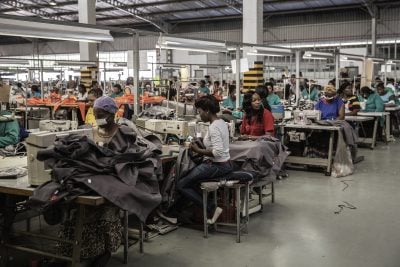Regime change and shifting alliances in the Horn of Africa over the past few years have pushed one of Africa’s most unstable and least integrated regional blocs into further irrelevance.
The Intergovernmental Authority on Development (IGAD) – an eight-country regional bloc that includes Djibouti, Ethiopia, Somalia, Eritrea, Sudan, South Sudan, Kenya and Uganda – was set up in 1996 with the primary goal of addressing conflict in the region.
According to its current mission statement, IGAD’s role is to “promote regional cooperation and integration to add value to member states’ efforts in achieving peace, security and prosperity”.
However, the Djibouti-based organisation has been unable to deal with a proliferation of conflicts and a breakdown in multilateralism, experts say.
IGAD has been locked out of Ethiopia’s war with its dissident Tigray region, which has claimed more than 50,000 lives according to opposition leaders, and led to credible accusations of mass rape and killings. There is overwhelming evidence that Eritrean forces are involved in the conflict, making it more than just an internal affair.
Since last September, there have been border skirmishes between Ethiopia and Sudan focused on the disputed Fashaga farmlands, in another potential regional dimension to the conflict. Relations between Kenya and Somalia have also deteriorated rapidly, leading to reported border clashes.
Murithi Mutiga, project director for the Horn of Africa at Crisis Group, says that IGAD is currently facing an “existential crisis” and is unable to contribute to promoting peace and stability in a region that faces multiple challenges.
Low levels of intra-regional trade reflect lack of cooperation
Historically, multilateralism was never a top priority for a collection of countries whose histories are steeped in conflict and proxy conflict. Some of the region’s formative leaders fought long bush wars to gain office and became naturally suspicious of outside actors and neighbours.
The long-term lack of cooperation is demonstrated by low levels of intra-regional trade, in contrast with levels seen in the six-member East African Community to the south.
The region’s two largest economies – Ethiopia and Kenya – barely trade with each other, despite the 895km of recently completed road connecting Nairobi and Mombasa in Kenya with the Ethiopian capital of Addis Ababa.
The road has been constructed as part of the TransAfrica Highway network in an attempt to boost trade, and has been co-funded by the African Development Bank (AfDB) to the tune of $670m. However the road is practically empty apart from local traders moving goods within each country.
Discord grows between Kenya and Ethiopia
Yet Kenya and Ethiopia have traditionally been the most vocal proponents of multilateralism in the region.
“Historically there was a compact between Addis and Nairobi, the two hegemons in the region,” says Mutiga. “But in the last few years we have seen considerable dissonance between Addis and Nairobi which has [made] IGAD untenable.”
Experts largely attribute the breakdown in relations to a change of administration in Addis Ababa. Ethiopia’s late President Meles Zenawi was a key advocate of multilateralism in the region.
“Usually, Ethiopia was the first country to support some kind of regional intervention in conflict,” says Rashid Abdi, an independent analyst on the region. “Now we have a case where IGAD said Ethiopia is fighting back against regional intervention.”
In contrast, current Ethiopian prime minister Abiy Ahmed, who was elected in 2018, has taken a very personal approach to foreign policy and diplomacy. The approach led to him receiving the Nobel Peace Prize in 2019, but has largely bypassed multilateral efforts in the region, experts say.
Abiy sent an Ethiopian envoy to Sudan during the fall of longtime dictator Omar al-Bashir, while other countries stood behind an AU delegation.
AU bureaucrats were reportedly angered that they were left out of the rapprochement between Eritrea and Ethiopia engineered by Abiy when the countries signed a peace agreement in Saudi Arabia in 2018.
Abiy’s approach to Somalia has also disrupted the region’s traditional alliances. Kenya and Ethiopia previously shared a common approach to Somalia designed to contain the war-torn nation and prevent it from supporting separatist uprisings in their territories, as it did in the 1960s and 1970s.
“The Kenyans were surprised that suddenly there was a shift in Addis Ababa’s approach,” says Crisis Group’s Mutiga. “There is very strong [Ethiopian] support for President Mohamed Abdullahi ‘Farmajo’ and Mogadishu, when historically Ethiopia favoured a more decentralised way of governing Somalia. They wanted to keep it from being a threat.”
Both Farmajo – whose term in office has officially ended but who continues to discharge his duties at time of writing – and Abiy have been trying to diminish the power of their respective federal regions.
The shifting sands have led to Kenya taking a more aggressive foreign policy stance towards Somalia, as its old alliances in the region are being tested. Somalia has accused Kenya of interfering in domestic politics and supporting the former warlord turned president of Jubaland, Ahmed Madobe.
Relations between the neighbours have been characterised by hostile rhetoric and diplomatic expulsions. The two countries are also locked in a dispute over 100,000 sq km of maritime territory that is believed to hold substantial oil and gas reserves.
“The Kenyans are historically very cautious, they have just preferred to be good trading partners with everybody,” says Mutiga. “Now they have tried to become more politically ambitious to the extent they have tried to influence the outcome of the Somali elections, and that has created some problems for Kenya within the region.”
Another regional change that works to the detriment of IGAD and multilateralism is the strengthening of Eritrean dictator Isaias Afewerki. After years of Eritrean isolation, the ageing president has seen his fortunes increase following the thawing of relations with Ethiopia.
Critics argue that the peace agreement between Abiy and Afewerki was little more than a strategic move to contain the Tigray region in anticipation of the current war.
“In theory, Eritrea is an observer at IGAD but they are no friends of the organisation,” says Mutiga. “They are trying to create this smaller bloc between Ethiopia, Eritrea and Somalia.”
The current IGAD chair, Sudanese prime minister Abdalla Hamdok, is also unable to devote serious attention to the multilateral body due to a host of domestic economic and political issues.
Looking ahead
Observers argue that IGAD’s impotence compared to other regional blocs like ECOWAS and SADC is because IGAD is almost entirely donor funded.
Both SADC and ECOWAS, which are funded by a mix of member state contributions and donors, have wielded regional peacekeeping groups capable of intervening in conflicts, but IGAD has no such force. And while SADC and ECOWAS have clear regional hegemons that can meaningfully lead the organisations, IGAD lacks such a figure.
Crisis Group’s Mutiga believes that IGAD can strengthen by focusing on relatively uncontroversial topics like desertification, climate change and the coronavirus response.
Independent analyst Abdi argues that it must focus solely on conflict resolution, saying that it will lose any remaining value if it becomes a “jack of all trades”.
Both agree that the organisation is at a critical juncture, and any further loss of power may lead to an existential crisis.
“If you let IGAD become a reflection of its vulnerabilities of national interest then it cannot be an arbiter and it will not be able to solve problems,” says Abdi.
Want to continue reading? Subscribe today.
You've read all your free articles for this month! Subscribe now to enjoy full access to our content.
Digital Monthly
£8.00 / month
Receive full unlimited access to our articles, opinions, podcasts and more.
Digital Yearly
£70.00 / year
Our best value offer - save £26 and gain access to all of our digital content for an entire year!
 Sign in with Google
Sign in with Google 



